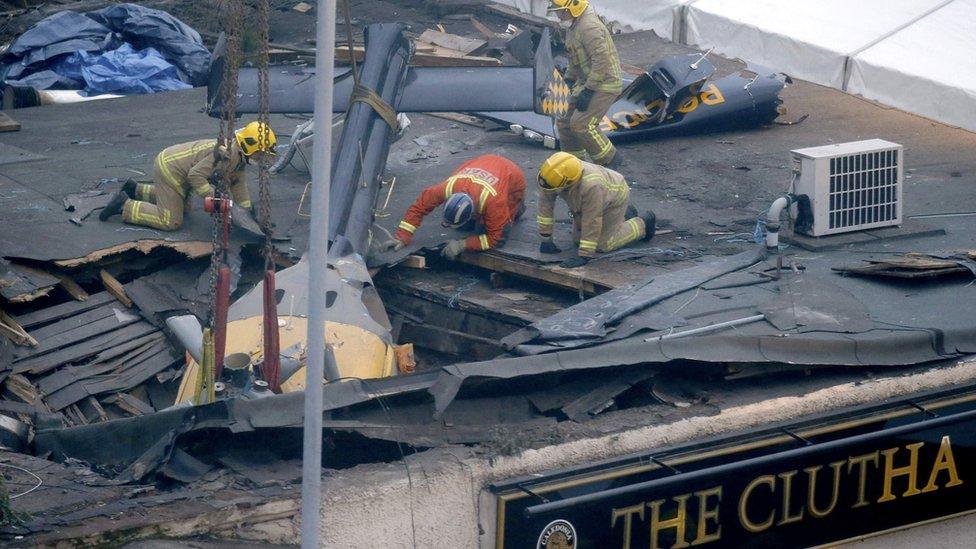Clutha Inquiry: 'No evidence' of helicopter fuel contamination
- Published
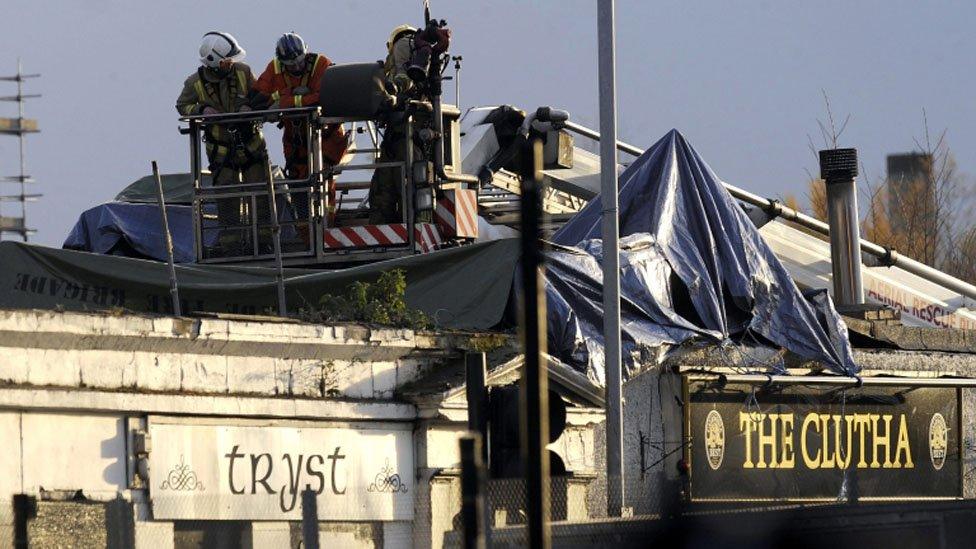
Ten people died in the crash
The fatal accident inquiry into the Clutha helicopter crash has heard that there was no evidence the aircraft's fuel had been contaminated.
Ten people died when the Police Scotland aircraft crashed into the roof of the Glasgow bar on 29 November 2013.
The inquiry was told that both water and compressor washing fluid could affect fuel gauge readings.
Robert Vickery from the Air Accidents Investigation Branch said no indication of fuel contamination had been found.
However, under cross-examination by Donald Findlay QC, for the family of victim Robert Jenkins, he acknowledged that fuel contamination on such a small aircraft would be "barely detectable".
Mr Vickery, senior inspector of air accidents at the AAIB, agreed with Mr Findlay that "absence of evidence is not evidence of absence".
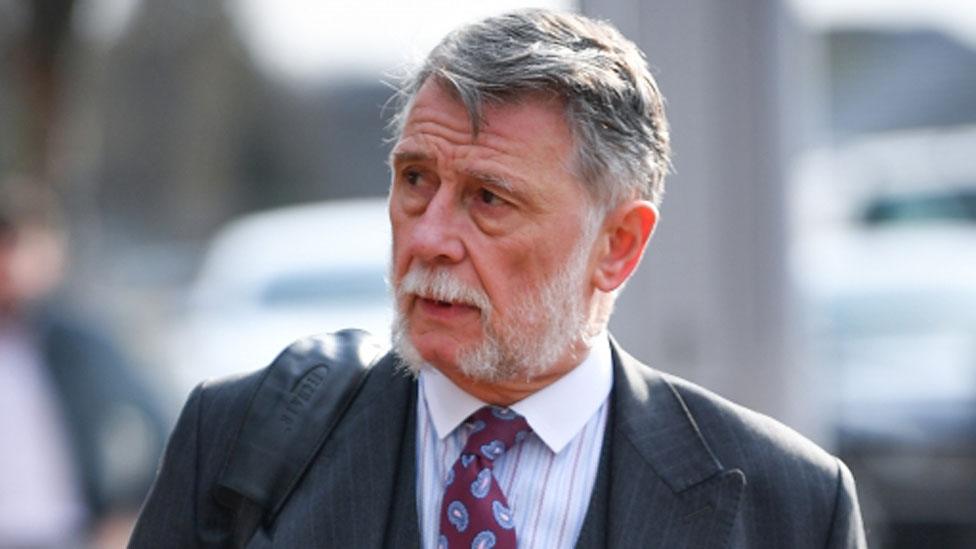
Donald Findlay QC is representing the family of Robert Jenkins
Mr Vickery told the court: "All our investigations are based on evidence.
"We cannot work by speculation, we cannot work by making assumptions, because making assumptions and speculating is not good for aviation safety.
"We can cause problems by guessing."

Clutha inquiry: The evidence so far

Mr Vickery told the inquiry that there was no smell of fuel or any evidence of a leak at the scene of the crash.
He also confirmed that the aircraft had been lifted out of the pub at the same angle it had come to rest.
He said he did not want the helicopter to disintegrate any further, and that he "wanted to have as much evidence as possible".
Asked if he was confident that the fuel levels were the same as when the aircraft crashed, he said: "Yes."
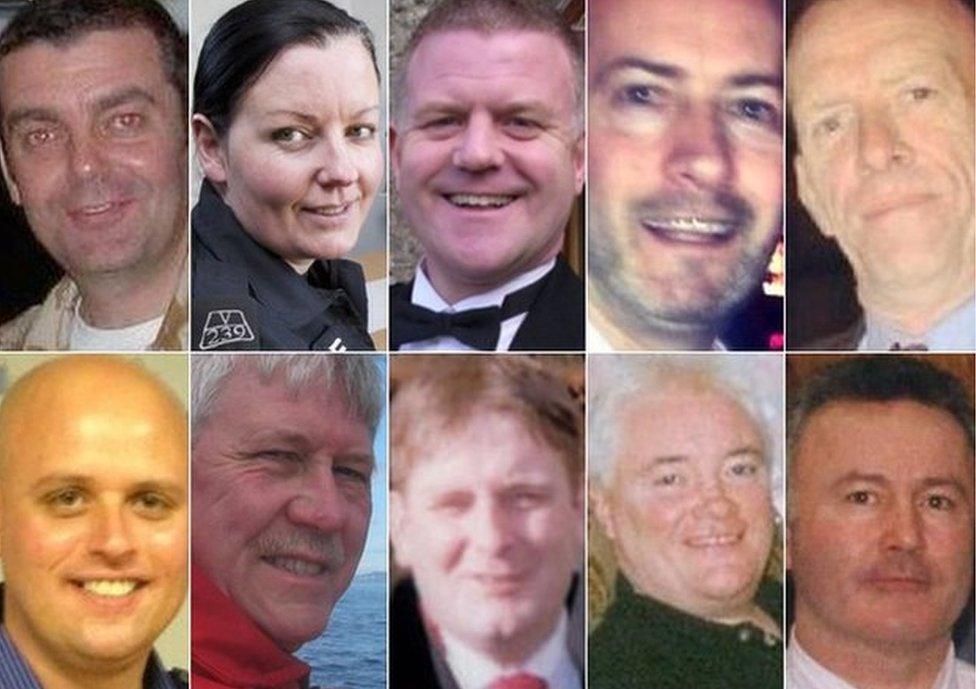
(Top: L to R) David Traill, PC Kirsty Nelis, PC Tony Collins, Gary Arthur, Samuel McGhee (Bottom: L to R) Colin Gibson, Robert Jenkins, Mark O'Prey, John McGarrigle, Joe Cusker
The inquiry has previously heard that the helicopter's pilot had received five low fuel warnings before the crash.
It has also heard that the aircraft did not have a flight recorder, which meant there was no data about when fuel warnings came on and the length of time they stayed on.
Pilot David Traill, 51; PC Tony Collins, 43; and PC Kirsty Nelis, 36, lost their lives in the crash along with seven customers who were in the bar on Stockwell Street.
They were Gary Arthur, 48; Joe Cusker, 59; Colin Gibson, 33; Robert Jenkins, 61; John McGarrigle, 58; Samuel McGhee, 56; and Mark O'Prey, 44.
The inquiry, which is being held at Hampden Park in Glasgow, continues.
- Published17 April 2019

- Published10 April 2019
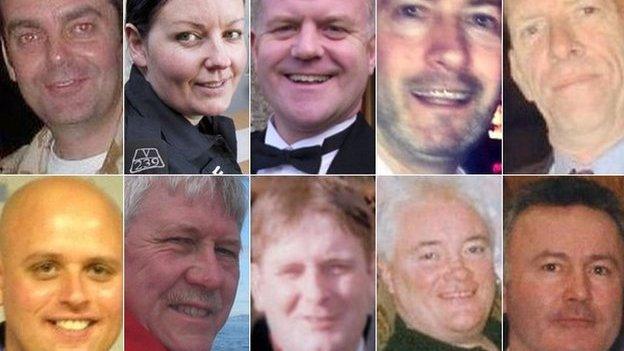
- Published8 April 2019
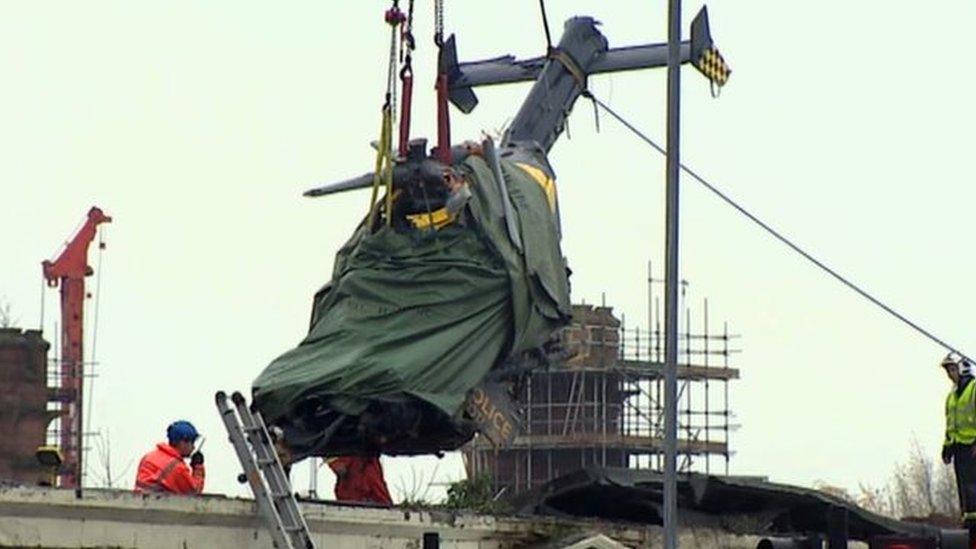
- Published3 April 2019
